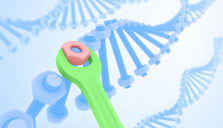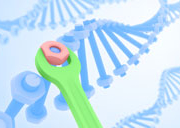Gene Drives: the ethics of destroying a species to save human lives
 If one had the power to save millions of human lives by exterminating a whole species, could we and should we do so? Ethical questions like this have been around in one form or another in text books, seminar halls and popular science fiction shows for decades.
If one had the power to save millions of human lives by exterminating a whole species, could we and should we do so? Ethical questions like this have been around in one form or another in text books, seminar halls and popular science fiction shows for decades.
With the advent of CRISPR/Cas9 technology offers the tantalising possibility that this could be a real ethical dilemma in the next decade. An article in the Economist outlines how millions of dollars are now being invested into so-called gene drives, inserting lethal or sterilising genetic traits into a population to cause its attrition toward extinction. Such gene drives could include making it possible only to produce male offspring, which could lead to total population collapse within a generation.
Why would we choose to do this, when the current global focus is on bio-diversity and preserving species? The answer, quite simply, is to eradicate the vectors of some of the major tropical diseases. Mosquitos that pass on malaria, dengue fever and Zika virus and tsetse flies which transmit trypanosomiasis (sleeping sickness), are just two of a number of invertebrates that transmit serious illnesses to humans. Eradicating the vector is an obvious way of stopping the transmission.
This is not a new idea – the marshlands around Rome were drained by Mussolini to stop the breeding of mosquitos that afflicted malaria on the Italian people. DDT was used widely to eradicate mosquitos in Africa and Asia (with disastrous consequences) in the post-war era. But total eradication of a species of vector has never been a technical possibility, until now.
While it is true that any negative trait introduced into a population tends to disappear because those not carrying the gene are more likely to survive to reproduce, the gene drive is a method for bypassing this process by continually re-introducing traits that will in time cause population collapse.
Herein lies the dilemma. Malaria, dengue, sleeping sickness and many other such illnesses cause death and misery on an untold scale in much of Africa and Asia. To make such diseases a thing of the past would seem worth paying the price of the extinction of a species. And a biblical ethic teaches that human life is worth more than animal life, so the sacrifice of an animal for a human is seen as acceptable and even desirable.
However, the elimination of a whole kind of animal seems instinctively wrong. First of all, every species (even the ones we do not like or fear) serve a purpose. Remove flies, and the process of decay is stalled. Remove an insect that is a key part of the diet of another predator and we might see more than one species head towards extinction. Introduce an alien predator to quell one species and we can see other populations decline. We tamper with Creation at great risk, as we learnt with DDT.
As the Economist also points out, once released into an ecosystem, gene drives cross international and national borders with no control and no compunction, so the political challenges of agreeing to such a programme are huge.
But leaving aside pragmatism, the core ethical question of whether we should (or could) eliminate one species by tampering with its genome needs serious consideration. We are taking on a divine role here – and is it one that we have the moral, spiritual and practical integrity to carry out? Given even recent human history, even a convinced atheist would have to confess that we do not!
Furthermore, once we can eliminate or modify one species, which others would we wish to change in other ways? It is not just human enhancement that CRISPR/Cas9 makes a possibility in the near future. We can already genetically modify crops and animals for agricultural purposes, increasing yields and disease resistance. What if we can modify other species to become less dangerous to us – making spiders and snakes less poisonous to humans, for instance? If we achieve that, then we have the potential to do the opposite. Genetically weaponising other species, especially microbes, is already a cause for concern, one that this technology may make much more possible. If a hostile government or terrorist organisation could access and use such technology, the consequences could be disastrous.
However, we do not need just to worry about hostile use of gene drives. Commercial interests will also be an issue that will need watching. Modifying or eliminating species that are a threat to commercial concerns could have far reaching unintended consequences. Regulation of such uses would be a political minefield as it would also have to have global agreement. All it would take is one rogue state that allows unfettered usage of gene drives, and major ecological and social consequences could ensue across a wider area.
There is no doubt that we need to invest in research into novel methods for controlling tropical diseases. Vaccines, bed nets, swamp drainage, Wolbachia and other novel microorganisms and many other methods do work, they just have not always had the investment or the time needed to achieve a significant impact. Even more effective are the low technology, community based interventions that help populations to identify their own means of protecting themselves without relying on hi-technology and Western donors.
It is therefore concerning to hear that the Gates Foundation have just put US$75m into gene drive research when so many other, less dangerous or ethically questionable approaches are yet to be fully explored or funded.




Leave a Reply
Want to join the discussion?Feel free to contribute!